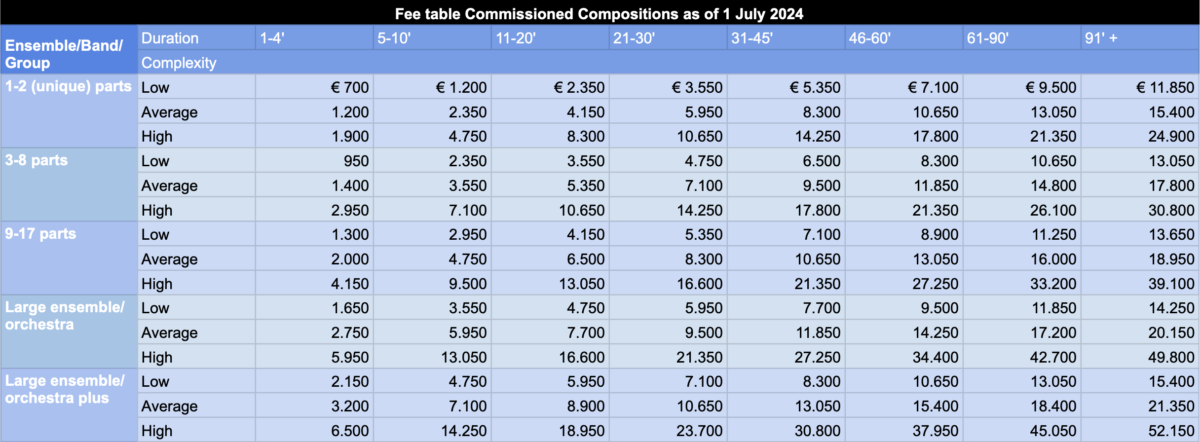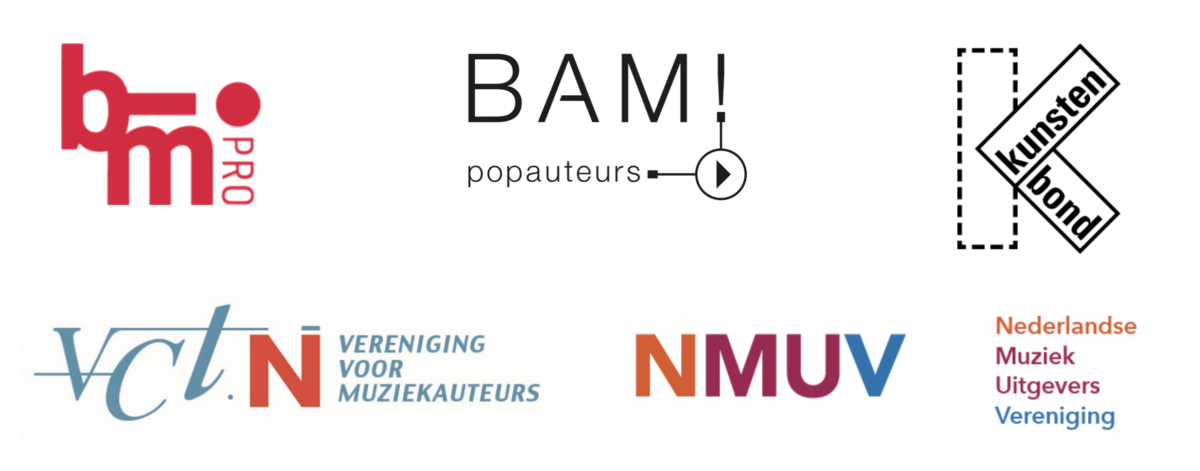Nieuw Geneco Fee table for composition commissions
version 01-07-2024
In the case of a composition commission, a fair fee is agreed in advance between the client and the composer.
What is appropriate? The Nieuw Geneco ‘Honorariumtabel’ Fee Table, used by the entire sector, offers a solution. It is part of the broader Fair Practice Code for composition commissions.
The table below provides a matrix for calculating an appropriate fee for the creation of a composition. This is not about a genre or style. The determining factors are: the duration of the piece, the number of voices or parts and the complexity of the work for the composer. After all, these factors determine the time and skill that the composer puts into creating the new work.
The table shows the minimum appropriate fee. Naturally, the expertise and reputation of the composer, the urgency required, or special features of the commission will result in a higher fee. Please discuss with the composer/publisher what is appropriate for this commission.
PLEASE NOTE:
– Performance costs such as sheet music and other required work are not included in the composer’s fee.
– The client and the contractor make clear agreements in advance about the compensation for other work and costs, such as the supervision of rehearsals, a lecture or introduction, travel and accommodation costs.
– As of 1 July 2024, the New Geneco Fee Schedule will be indexed annually.

Explanatory notes
- ‘Complexity’ (bewerkelijkheid in Dutch) is tied to two different but related parameters: the role/function of the music in the context of a performance and the difficulty of the composing process itself.
- Role/function: When the music demands a composer’s personal signature, as in concert music, opera, and musical theater, the complexity is high. This rule of thumb also applies when a composer is asked to write for a dance or theater performance based on his/her own signature. When a commissioner explicitly asks for music of a general or generic nature, this may result in a less labour-intensive compositional process.
- Composing process: When a work calls for individual treatment of its parts, the composing process is more laborious. When the parts employ a significant portion of improvisation, or when the parts themselves are extremely similar, such as in a soundscape, this may also lead to a less labour-intensive and time-consuming process.
- If the composition allows a major part for improvisation or some other type of contribution of the musicians, this must be indicated as a percentage of the total work or ‘set’.
- For some composers, the writing of songs and other musical lyrics forms an important part of the creative process. This must be taken into account when determining the degree of complexity.
- The term ‘duration’ (speelduur in Dutch) may also be the total of several related pieces or tracks. 3 tracks of 4 minutes would count as 12 minutes. Also, one set of 60 minutes may be requested.
- The term ‘part’ (partijen in Dutch) is used for music played by orchestras and ensembles to indicate the strength, in which some musicians may have a unique part and others may double each other. For electronic music, the number of unique ‘tracks’ may be stated.

